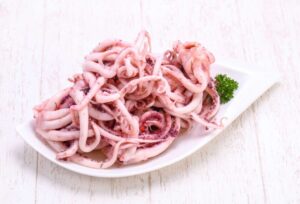Frozen food is a popular choice for many New Zealanders, with the benefits being great value, high quality and sustainability. It also allows you to buy ingredients that are otherwise out of season and can be enjoyed throughout the year.
 New Zealand has a long history of frozen food New Zealand, and it’s often the safest option to buy. It also helps to reduce food waste, which is good for the environment and your budget.
New Zealand has a long history of frozen food New Zealand, and it’s often the safest option to buy. It also helps to reduce food waste, which is good for the environment and your budget.
Origins
Unlike other countries, New Zealand doesn’t require Country of Origin labelling on packaged foods. However, this is set to change.
A country-of-origin label would give consumers a chance to know where their food comes from and what the essential character of the product is. The country-of-origin labelling rules will go into effect on 12 February 2022 for fresh, thawed, and frozen foods.
While this is a step in the right direction, it is still voluntary in New Zealand, and there is no guarantee that the products will be made in New Zealand or that they will be produced with local ingredients.
Frozen berries are one of the top imported foods in New Zealand, and there have been several recent cases of hepatitis A linked to this import. While the health ministry hasn’t imposed any recalls, it has warned consumers not to eat imported berries.
Health concerns
New Zealanders are urged to think carefully about the health of frozen food New Zealand after three people recently became infected with Hepatitis A. The disease is rare in the country but can be passed on through poor personal hygiene, contaminated food, and close contact with an infected person.
The Ministry for Primary Industries has been aware of these three cases and is working with the relevant food businesses to monitor the situation. It advises older adults, those with chronic liver damage and pregnant women to consider extra precautions when eating imported frozen berries.
Hepatitis A is an infectious liver disease that can cause severe symptoms, including fever, jaundice, and dark urine. It is caused by the hepatitis A virus and is transmitted through contact with the faeces of an infected person. This is mainly transmitted through unwashed hands.
Ingredients
Frozen fruit and vegetables are common ingredients in frozen meals. They can be used in a range of recipes and can save time when preparing meals.
However, it’s difficult to tell where the food comes from. Companies often use vague statements like ‘packed in New Zealand from imported ingredients’, meaning the product may have been grown in China or elsewhere.
For example, McCain says on its packaging that its broccoli is from China and brussels sprouts are from the Netherlands. Still, it also uses a lot of produce from Australia, Europe and North America.
To ensure consistent food safety, New Zealand is considering requiring mandatory country-of-origin labelling on frozen food. But the government and some big exporters are against it, believing a voluntary system, backed by the Fair Trading Act, is a better option.
Preparation
If you’re interested in starting a home-based food business, you must comply with other businesses’ exact food safety requirements. This includes growing, manufacturing, importing, selling, or storing food products.
If the product you sell will be exported from New Zealand, you must comply with the Food Act 2014 and the relevant national rules for the country of export. For example, if you sell frozen fruit in Australia, you must comply with the Australian Food Standards Code.
There are also specific requirements for storing potentially hazardous foods and cooling and reheating them. You can use our My food rules tool to determine which food safety regulations apply in your area and what you need to do to meet them.
Frozen Food – A New Way to Enjoy Your Favourite Kiwi Foods
Food is a cornerstone of frozen food New Zealand culture, and we love our food. Our quintessential Kiwi foods include the likes of fish and chips, creamy green-lipped mussels, crayfish and king salmon.
Frozen is a great way to enjoy all those favourites without worrying about fresh produce. It’s available at all times of the year, is affordable and offers a vast range of options.
You can find frozen products in most supermarkets and many specialty food shops. You can also find them in most local restaurants.
IQF (individual quick freezing) is a process that freezes food individually, locking in quality, flavour and nutrients while reducing the amount of trauma thawing causes to the cells. It’s used on vegetables, fruits and berries, for example.


